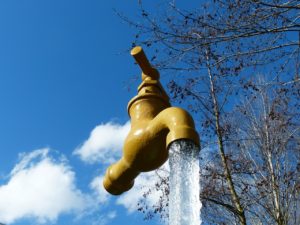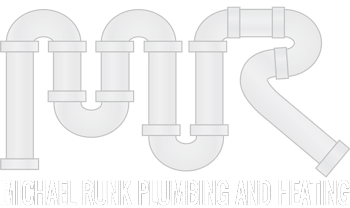 Maryland winters are mild in comparison to Maine or Colorado, but we still get our share of cold and crisp days and nights when the temperature drops below freezing. When this happens, pipes in our homes can freeze and burst, causing a big inconvenience and significant damage to your property. Thankfully, you can prevent this by winterizing your plumbing and being prepared to act if the pipes do freeze. Here are a few tips from our Maryland plumbing and heating maintenance experts to help you get your plumbing ready for the winter.
Maryland winters are mild in comparison to Maine or Colorado, but we still get our share of cold and crisp days and nights when the temperature drops below freezing. When this happens, pipes in our homes can freeze and burst, causing a big inconvenience and significant damage to your property. Thankfully, you can prevent this by winterizing your plumbing and being prepared to act if the pipes do freeze. Here are a few tips from our Maryland plumbing and heating maintenance experts to help you get your plumbing ready for the winter.
Why Pipes Burst
Frozen pipes are actually only half the trouble. The real danger is that frozen pipes tend to burst. Pipes typically burst somewhere between the frozen water blockage and the nearest water outlet, such as a faucet or a laundry room hookup. The pressure builds up in that empty space and eventually has to be released through the pipe’s wall. If you notice a sudden drop in water pressure, no water coming out of the faucet or damp spots on your walls or ceiling, it’s likely that a pipe has frozen and burst.
It’s good to know that pipes don’t burst immediately after freezing—if you catch it early, you might have time to thaw the frozen portions with spot heaters. The only tricky part might be figuring out which pipe froze and where.
Some common locations for frozen pipes:
- Plumbing along exterior walls
- Pipes in attics, basements and crawlspaces
- Plumbing for baseboard heating
- Pipes located in unused areas
Winterizing Your Pipes
Once you identify the pipes that could potentially freeze (or maybe they have frozen before), it’s time to insulate them. Use insulation tubes made for pipes to wrap any plumbing you can get to. If you decide to use heat tape, be very careful and make sure you follow manufacturer’s instructions. Heat tape installation can be tricky, as you need to wrap the pipes without making overlaps. If you are not too handy or your plumbing is located in hard-to-reach places, it might be worth hiring a professional Maryland plumbing contractor to do this job for you.
While you are insulating your pipes, don’t forget about any outdoor faucets and hoses. Check if your outdoor faucets have a separate shut-off valve that you can use to cut the water off and drain the pipes. Winterizing your pipes also has a lot to do with your home’s insulation. Pipes freeze when they get in contact with cold air, and cold air seeps through the cracks and crevices left unplugged. Inspect your home, especially your basement and crawlspace, to make sure there are no cracked windows or open vents that could let the cold air in.
Before the Temperature Drops
Thankfully, weather forecasts for Maryland are more or less accurate these days. While they might not always exactly predict how much snow we’ll be getting, the temperature fluctuations and cold waves are usually spot on. If you hear that an unusually cold night is expected, here is what you can do to prevent your pipes from freezing:
- Don’t turn the heat off for the night or when you leave the house—lower it, but keep it on.
- Open faucets to create a slow drip to keep the water moving.
- Open up under-the-sink cabinets to warm up the pipes inside
If, despite all your precautions, a pipe does freeze, don’t panic! Locate the frozen pipe and open the faucet it supplies. If the pipe is accessible from your basement or crawlspace, you can thaw it with hot water soaked towels or heat tape. If the pipe isn’t directly accessible, such as in the case of a baseboard heater, turn on any heating devices you have and direct the heat at the pipe. This could be space heaters, blow dryers, heat lamps, etc. As the ice starts melting, you will notice a drip in the faucet.
When it’s too late and you’ve got a burst pipe on your hands, shut off the water and contact us for emergency plumbing services. We can repair the plumbing damage and get you back to your everyday life!
